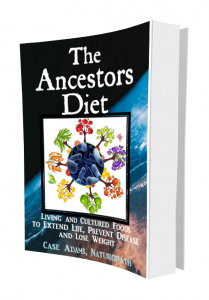Are Multivitamin Supplements Really Good for You?

Taking multivitamins may reduce mortality in study.
Many of us question the need for multivitamin supplements. Do we really need them? Humans survived for thousands of years without them. But then again, there is overly-processed foods. Which is it?
Turns out that there is some significant research on this question. Let’s dig into the data.
In this article
Different results with multivitamin supplements
Research published in the Annals of Internal Medicine show a slight increase of mortality among women who took multivitamins, vitamin B6, iron, magnesium, zinc and copper supplements. Is this the whole story?
Other research has found that multivitamin intake reduces inflammation, increases performance, reduces pain and anxiety, and increases strength and balance among older men and women. Which study is right?
The latter results came from a large 2011 study on multivitamin and mineral use among elderly women. The research utilized the Iowa Women’s Health Study, which followed 38,772 women from the average age of 62 years old in 1986 through 2008. As of 2008, 15,594 of the women being followed died. That is 40.2% of the women.
At three points – in 1986, 1997 and 2004 – the women were questioned as to their supplement use. The women characterized their vitamin and mineral supplement use at that time.
At the end of the testing period, the supplement use was indexed against the deaths among the women. It was found that death rates were 6% higher among those women who said they took multivitamins regularly, 10% higher among those who said they took a vitamin B6 supplement regularly, 15% higher among those who said they took a folic acid supplement, 10% higher among those who said they took regular iron supplements, 8% higher for those who said they took magnesium supplements regularly and 45% higher among those claiming to take copper supplements regularly.
However, those who took calcium had a 9% lower mortality death rate than those who did not take calcium. These were of course compared to those who said they did not take those supplements.
To test their results, the researchers then broke down the results for iron and calcium use into smaller periods of use – namely 10 years, six years and four years. This analysis confirmed the results of the larger period study.
Other factors of the study
However, what does this study NOT isolate? A number of things that are common among people who take vitamin supplements regularly, most of which would significantly affect the mortality rates:
– Some who take regular supplements do not eat a proper diet. They feel that supplements replace their need to eat a balanced diet (low in saturated fats, high in fiber and high in natural antioxidants and other phytonutrients).
– Many who take regular supplements – especially those who also take isolated vitamins and minerals – take doses far higher than the recommended doses – thinking that more is better. Many of these vitamins will burden the liver and other organs as they attempt to balance the body’s nutrient levels, along with those nutrients that are not in the supplements.
– Many elderly persons who take multivitamins do not take food-based multivitamins. Rather, they will buy low-cost chemically-synthesized nutrients that are not well-utilized by the body. Examples of this include vitamin E (alpha-tocopherol only, in the synthesized form of rac-α-tocopheryl acetate) and vitamin D2. Meanwhile, the body best utilizes mixed tocopherol and tocotrienol forms of vitamin E as present in plant foods, and vitamin D3, as converted by the liver from sunshine.
– Many who take regular supplements feel that they replace a healthy lifestyle. As such, they may exercise less and live more sedentary lifestyles, thinking that their vitamins are giving them extra insurance.
These factors were not removed from the study, and because they were not removed from the study, the study cannot be considered a valid basis to say that taking a natural, food-based multivitamin, assuming nutrient doses are not too high, and assuming the taking of supplements is not seen as replacing eating a healthy diet or replacing a healthy lifestyle, is harmful.
Two medical experts have published a review of the recent Iowa Women’s multivitamin study data that shows the study actually revealed that multivitamins and a number of single vitamins and minerals reduced mortality rates among the group.
The study analyzed the results of 38,772 women that measured deaths and supplement use between 1986 and 2008. The initial research used multivariable adjustments to the results, which indicated that certain supplements increased the risk of death, including vitamin B6, folic acid, magnesium, copper, iron, and vitamin E.
In the new review of the study data, Carolyn Dean, M.D., N.D. and Robert G. Smith, a Research Associate Professor at the University of Pennsylvania’s Department of Neuroscience, and a member of the Institute for Neurological Sciences, found that:
- vitamin B complex use was linked with 7% decrease in death rate
- vitamin D supplementation was linked with an 8% reduction in deaths
- vitamin C use was linked with 4% percent reduction in deaths
- magnesium was linked with a 3% reduced percent reduction in deaths
- selenium and zinc supplementation also reduced deaths
Dr. Smith commented on the clarified results of the study. “This study showed a benefit from taking B-complex, C, D, and E vitamins, and calcium and magnesium. Therefore, if those wanting better health would take appropriate doses of supplements regularly, they would likely continue to achieve better health and longer life.”
Risks of iron and copper
The review did not deny the risks associated with iron and copper supplements that were revealed by the initial study’s researchers. “Iron and copper supplements, which are known to be potentially inflammatory and toxic when taken by older people, because they tend to accumulate in the body, should not be generalized to imply that all vitamin and nutrient supplements are harmful,” commented Professor Smith.
Dr. Dean, a noted author and nutritional expert, discussed the importance of adequate magnesium. “Most people can benefit from magnesium supplementation because this vital mineral is sorely lacking in our standard American diet. Over 75 percent of Americans don’t get their recommended daily allowance of this multi-tasking mineral. Additionally, many people may not be getting the full benefits from vitamin D without also supplementing their diets with magnesium, which is a vital nutrient that works synergistically with vitamin D.
“Adequate levels of magnesium in the body are essential for the absorption and metabolism of calcium as well. Magnesium converts vitamin D into its active form so that it can help calcium absorption. Magnesium stimulates a particular hormone, calcitonin, which helps to preserve bone structure and draws calcium out of the blood and soft tissues back into the bones, which can help prevent osteoporosis, some forms of arthritis and kidney stones.”
Safety record compared to pharma meds
The report also compared the safety record of dietary supplements with those of prescription medications.
Dr. Jagan Vaman and Dr. Andrew W. Saul found, in an analysis of American Association of Poison Control Centers’ data that there have been no deaths attributed to vitamins in 27 years of reporting. The study was published in the Journal of Orthomolecular Medicine. The study’s authors stated that, “Vitamin therapy is tens of thousands of times safer than drug therapy.”
A 2010 study by the Substance Abuse and Mental Health Services Administration and the Centers for Disease Control published last year found that prescription painkillers caused more than 300,000 emergency room visits in 2008. This was double the 144,644 ER visits for these painkillers in 2004.
According to an ABC News report, prescription drugs now cause more death than motor vehicle accidents. Dr. Leonard Paulozzi, medical epidemiologist at the CDC’s division of unintentional injury prevention, commented on the report. “There has been a dramatic increase in the use of prescription drugs as physicians have become more liberal in prescribing them,” according to the report.
Other research confirms multivitamins reduce inflammation
This is confirmed in a study published in the Journal Nutrition in September of 2011 by researchers from the University of Connecticut. This study followed 31 healthy, active men and women. The subjects were carefully and directly tested and monitored on their physical performance, bloodstream parameters, pain, joint pain, anxiety, jump power, grip strength and other parameters.
For the first 28 days, the group was given a placebo (no nutrients) supplement, as they were tested. After the first 28 days, they took a week off of the “supplements.” Then they embarked on a second 28-day period, this time taking a multivitamin supplement. The study was double-blind, so none of the researchers nor the subjects knew what was being given – multivitamin or placebo.
When the two periods were compared, inflammation markers significantly decreased during the multivitamin supplementation period compared to the placebo period. Strength and power increased among the multivitamin men. Pain and joint pain also decreased among the men during the multivitamin period. Anxiety decreased among the multivitamin women, and balance increased among the multivitamin women group. Other markers for blood health were also seen improved during the multivitamin period.
The researchers concluded:
“A multi-nutrient supplement is effective in improving inflammatory status in both men and women, markers of pain, joint pain, strength, and power in men only, and both anxiety and balance (a risk factor for hip fracture) in women. Therefore, a multi-nutrient supplement may help middle-aged individuals to prolong physical function and maintain a healthy, active lifestyle.”
Why the significant difference between these two studies? A more controlled study like this one allows investigators to control and eliminate other factors that may be at play. They are involved directly in the study so they can see the other factors involved.
The issue in the large questionnaire-formulated studies is that they do not do enough to control or even understand other factors at play. While they are impressive because they are large, that largeness can also produce large errors because of their large scope and lack of direct observation. This prevents accuracy in formulating a trustworthy result.
Furthermore, the result of the elderly women study is overwhelmed by the numerous studies that have found that balanced diets high in phytonutrients, fiber and healthy fats increase health and reduce risk of early death.
REFERENCES:
Dunn-Lewis C, Kraemer WJ, Kupchak BR, Kelly NA, Creighton BA, Luk HY, Ballard KD, Comstock BA, Szivak TK, Hooper DR, Denegar CR, Volek JS. A multi-nutrient supplement reduced markers of inflammation and improved physical performance in active individuals of middle to older age: a randomized, double-blind,placebo-controlled study. Nutr J. 2011 Sep 7;10:90.
Mursu J, Robien K, Harnack LJ, Park K, Jacobs DR. Dietary Supplements and Mortality Rate in Older Women: The Iowa Women’s Health Study. Arch Intern Med. 2011;171(18):1625-1633.
Evidence Summary: Vitamin Supplementation to Prevent Cancer and CVD: Preventive Medication. U.S. Preventive Services Task Force. February 2014.
Smith RG. Dean C. Vitamins and Minerals Lower Risk of Mortality – Study Confirms. Nutritional Magnesium Association Press Release. 2011 Oct 26.
The Living Food Diet: The Ultimate Diet for Increasing Vitality, Losing Weight and Preventing Disease
Healthy Sun: Healing with Sunshine and the Myths About Skin Cancer















